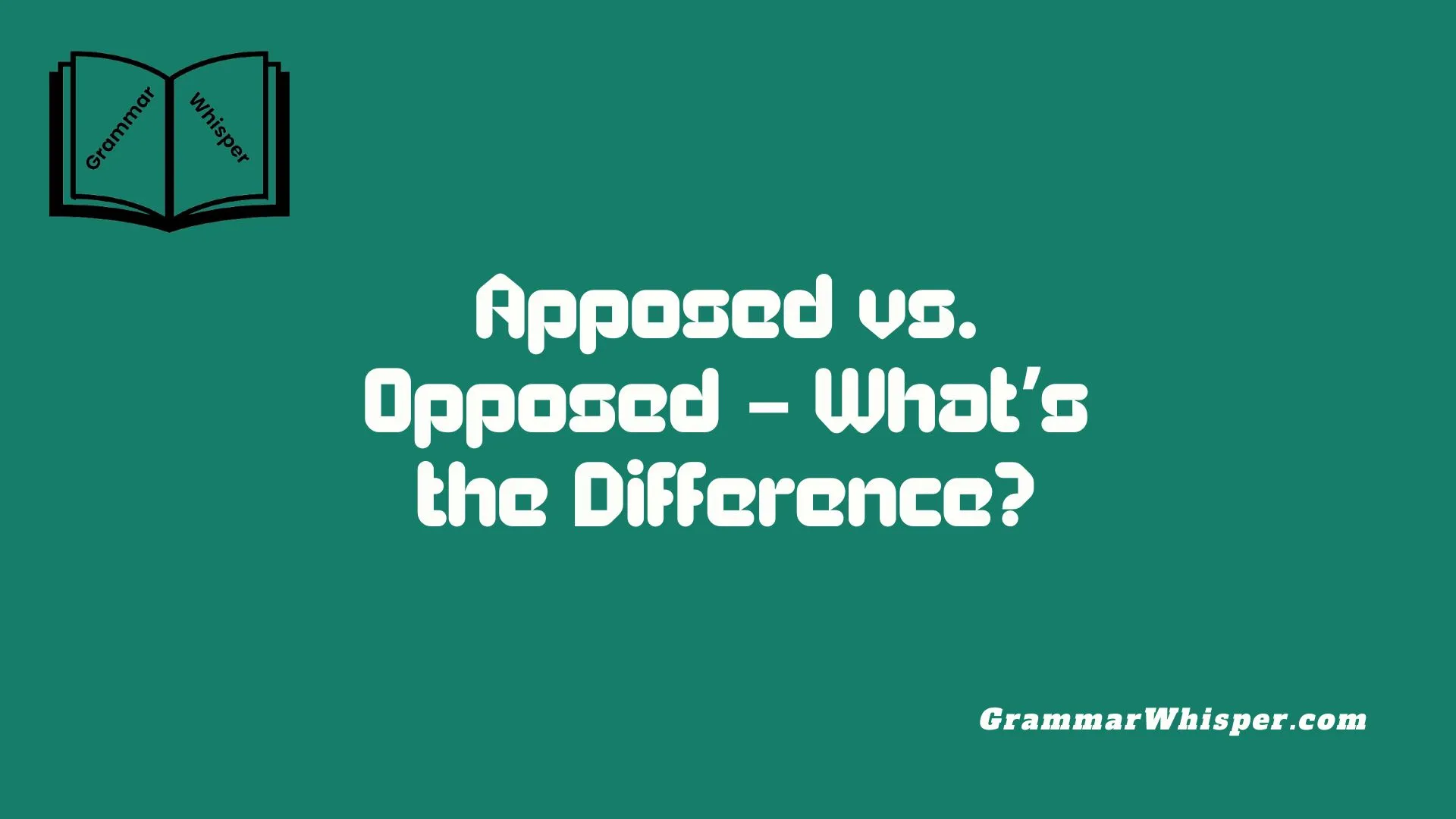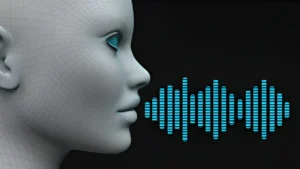When I first heard a young student say, “The petals were opposed,” I paused. I knew exactly what had happened – they meant apposed. It’s a common mistake because these two words look nearly identical, yet their meanings sit miles apart. As a grammar editor, I’ve seen students, writers, and even professionals confuse the two. One refers to things being placed closely next to each other – that’s apposed. The other involves conflict or contrast – clearly opposed. The difference matters because precision in word choice affects how your message lands.
Through years of teaching advanced grammar workshops, I’ve found that even linguists can trip up on subtle spelling. In one session, we explored how a single tricky word – when used incorrectly – can throw off a sentence’s entire flow. That discussion led us to talk about how usage, not just grammar, needs to be thoughtful. It’s not about sounding fancy, it’s about being accurate and confident. Whether you’re writing formally or casually, knowing the right word at the right time ensures you won’t be caught on the wrong side of language. Once that clarity clicks, you’ll never sit on the fence again.
Hooking the Confusion: Why “Apposed vs. Opposed” Trips Up Even Advanced Writers
- These words sound alike, but carry distinct meanings.
- The confusion arises from similar pronunciation, shared Latin origins, and rare usage of appose.
- Getting it right boosts your writing credibility and eliminates subtle miscommunication.
Dissecting the Core Meanings: What Does “Opposed” Actually Mean?
Opposed is much more than “against.” It’s a versatile word. According to Merriam-Webster, it means:
1. set against or against something; 2. contrary in direction; 3. in conflict
In everyday speech, “opposed” appears in contexts like:
- He’s opposed to the budget proposal.
- They opposed the opinion publicly.
Grammatical Forms:
- Verb: oppose / opposed / opposing
- Adjective: an opposed candidate
- Noun: opposition
The Anatomy of Opposition: Physical, Philosophical, and Functional Use
Physical Opposition
Objects are said to be “opposed” when:
- Positioned face-to-face or in opposition
- Frequently used in engineering, architecture, and physics
Example: Two magnets opposed each other with opposite poles.
Philosophical / Ideological Opposition
- Political parties oppose policies
- Scholars oppose ideas in debate
Functional Opposition
- In electronics, currents flow opposed or in phase
- In systems, opposing forces maintain equilibrium
Exploring “Appose”: A Technical Term You Probably Don’t Use (But Should Know)
Appose, pronounced /əˈpōz/, comes from Latin appōnere: “to place near.” It’s rare but valuable in contexts like:
- Medicine: apposed tissues in surgery
- Biology: cells apposed along a membrane
- Linguistics: words apposed in continuum grammar
This misuse appears in everyday writing, but reserved usage gives precision and clarity.
Key Differences Between Apposed and Opposed
| Feature | Apposed | Opposed |
| Part of Speech | Verb | Verb / Adjective / Noun |
| Meaning | To place side-by-side | To resist, to stand against |
| Frequency | Rare | Common |
| Common Context | Medical, scientific, linguistic | Politics, debate, daily speech |
| Example | The doctor apposed the wound edges. | They opposed the new bill in Congress. |
Common Errors: Why Writers Confuse These Words
- Sound-alike issue – Homophones cause mistakes
- Spellcheck complacency – Tools won’t catch appose misused as oppose
- Context neglect – One word completely changes the meaning
Horror story: “The two teams were apposed against each other” incorrectly uses apposed, which should mean “placed side-by-side,” not “in conflict.”
Real-World Examples: How Apposed vs. Opposed Shows Up in Actual Writing
Literature Excerpt
Incorrect: “His ideals were apposed to hers.” Correct: “His ideals were opposed to hers.”
Academic Journal
Correct: “The cell membrane apposed the underlying tissue layer.”
News Headline
Correct: “Senators opposed the new tax bill.”
Apposed in Specialized Fields: Where This Word Actually Belongs
- Medical Journal: Surgeons apposed the wound edges for optimal healing.
- Architecture Paper: Beams were apposed at precise angles to reduce load.
- Linguistics: Apposed morphemes convey structural relationships.
These show that appose serves specific, high-clearance purposes in technical fields.
Opposed in Daily Language: How It’s Used Across Contexts
- Politics: Citizens opposed the new zoning laws.
- Personal: She always opposed late-night assignments.
- Legal: The defense opposed the admissibility of evidence.
Opposed conveys resistance, disagreement, or contrast – starkly different from appose’s “placement” nuance.
Grammar Deep Dive: Sentence Structures and Word-Pairing Rules
- Opposed can function as an adjective: He was opposed.
- As a verb: They opposed the resolution.
- Apposed must be used with an object: Edge apposed to…
Avoid comma misuse: “They opposed, the amendment.” ❌ Correct: “They opposed the amendment.” ✅
Memory Boosters and Learning Strategies
- Mnemonic: “App-ose” → apposite → positioned; “Oppose” → oppositional → against
- Visualization: Image two objects side-by-side (apposed) vs. pushing against (opposed)
- Flash cards: Pair definitions with examples
- Context drills: Practice both words in specialized and general contexts
Quick Reference Table: Summary of Differences
| Feature | Apposed | Opposed |
| Definition | To place side-by-side | To resist or stand in conflict |
| Usage | Technical contexts | Common language |
| Examples | Tissue apposed, beams apposed | People opposed, voters opposed |
| Word Type | Verb | Verb, Adj, Noun |
Practice Section: Can You Tell Which Is Correct?
Fill in the blank with apposed or opposed
- The tissues were ___ during surgery.
- She firmly ___ the proposal.
- The beams are ___ along the wall.
- Community leaders ___ the development project.
Answers
- apposed
- opposed
- apposed
- opposed
Final Thoughts: Mastering Apposed vs. Opposed With Confidence
Understanding apposed vs. opposed is more than a minor trivia – it shows your attention to detail, skill in precise communication, and respect for context. Use apposed in specialized contexts where side-by-side placement matters. Use opposed broadly to signal resistance or contrast.
FAQs
What is the main difference between “apposed” and “opposed”?
The main difference lies in their meanings and usage. “Apposed” means to place side by side and is mostly used in technical or scientific contexts like medicine or biology. “Opposed” means to resist or be against something and is widely used in everyday English – especially in debates, politics, or expressing disagreement.
Is “apposed” ever used in casual conversation?
Not really. “Apposed” is rare in casual speech and is typically found in academic, medical, or scientific writing. In contrast, “opposed” is extremely common in both spoken and written English. If you’re unsure which to use, “opposed” is almost always the safe bet – unless you’re writing about anatomical structures or precise technical placements.
Can “opposed” be used as both a verb and an adjective?
Yes. “Opposed” functions as both a verb and an adjective:
- Verb: They opposed the policy change.
- Adjective: He is strongly opposed to late meetings.
On the other hand, “apposed” is only a verb, never an adjective.
Why do grammar checkers not catch misuse of “apposed”?
Because “apposed” is a real word, most grammar tools don’t flag it as incorrect – even when it’s used inappropriately. This makes it easy to misuse in place of “opposed” without noticing. Always double-check the context and meaning when proofreading.
What are some examples of “apposed” used correctly in a sentence?
Here are some accurate examples of “apposed” in proper context:
- The surgeon carefully apposed the edges of the wound.
- In histology, the cell membranes are tightly apposed.
- The beams were apposed to form a stable support structure.
These show how “apposed” means side-by-side positioning, not opposition or resistance.











